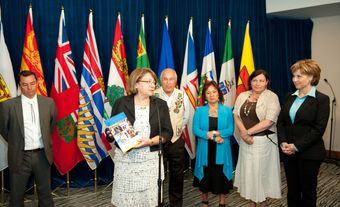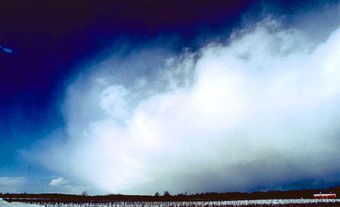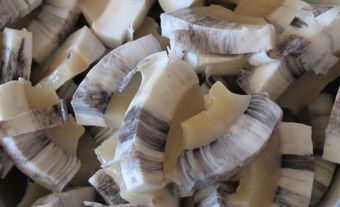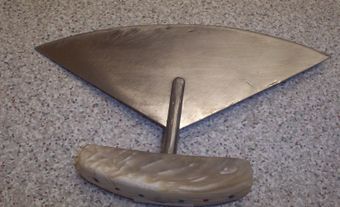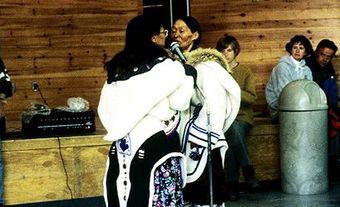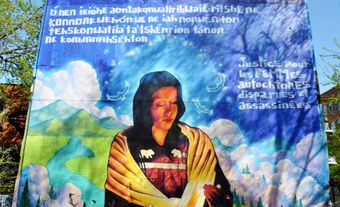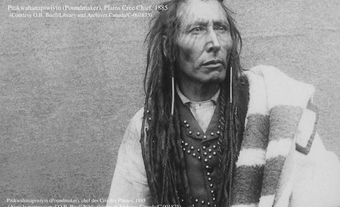Pauktuutit Inuit Women of Canada is a national not-for-profit organization that has been a leading advocate for Inuit women since 1984. It represents all Inuit women living in Inuit Nunangat (the Arctic homeland of the Inuit), and in southern urban centres across Canada. Pauktuutit supports and promotes Inuit women, their culture, values and language. It advocates for social, economic and political improvements that benefit women, their families and communities. It works with community leaders, Inuit organizations, as well as territorial and federal levels of government, to improve the lives of Inuit women and children. Pauktuutit helps build safe, healthy communities.

Association’s Beginnings
In the 1970s, Inuit organizations, such as Inuit Tapirisat of Canada (ITC, now Inuit Tapiriit Kanatami) were focussed on land claims and rights. However, Inuit women felt that day-to-day matters of importance to women were ignored. At a 1975 meeting in Pangnirtung, Northwest Territories (now Nunavut), some members discussed the idea of creating an Inuit women’s organization. Full support for the idea came at the 1981 ITC Annual General Meeting (AGM).
At the AGM, it was acknowledged that serious health and social issues existed in Northern communities. Women, the primary caregivers and keepers of Inuit culture, values and language, tended to be the ones to address these issues in their families and communities. A resolution was passed to create a national organization to represent Inuit women. The organization would enable them to advocate for changes to improve their lives and that of their communities. (See also Social Conditions of Indigenous Peoples in Canada.)
The founding meeting of Pauktuutit Inuit Women’s Association was held in March 1983 in Iqaluit (then Frobisher Bay, Northwest Territories). Fourteen women were elected as a board of directors to represent Arctic communities. Ottawa was chosen for the office location to make it easier for the organization to promote Inuit issues to the Canadian government. Pauktuutit would be a united voice for Inuit women and act as their official social-political action group.
The national association was incorporated as a not-for-profit on 1 April 1984. It received core funding and set up an office in the same building as ITC, blocks from Parliament Hill.
Pauktuutit’s first AGM was held in Igloolik in January 1985. Nearly 150 women attended this meeting. There were also at least two delegates representing each of the 53 communities in Nunatsiavut (Labrador), Nunavik (Northern Quebec), Nunavut (Baffin and Central Arctic), and Inuvialuit (Western Arctic).
At the AGM, health, education and culture were brought up as major areas of concern. The women discussed broader issues common in many Arctic communities, including domestic violence, substance abuse, the need for midwives, and lack of access to health care. In conjunction with the AGM, Pauktuutit organized an economic development conference to discuss how to create sustained employment in remote communities. (See also Health of Indigenous Peoples in Canada and Economic Conditions of Indigenous Peoples in Canada.)
Pauktuutit’s Work: A Voice for Change
Pauktuutit’s AGMs have continued to be a way to connect with women from across Inuit Nunangat. They are a forum for the board members and delegates to discuss their communities’ needs and issues. Pauktuutit uses this information to guide its activities. Since 2019, it provides updates on its work in its newsletter, Suliqpita, published in English and Inuktitut. There is no membership fee to belong to Pauktuutit, as all Inuit women are considered members.
Rather than operate programs and services, the organization focuses on advocacy and awareness. Pauktuutit organizes relevant conferences and publishes resource materials. It also creates videos broadcast in Northern communities that raise awareness of critical issues.
In the last three decades, the organization has tackled major social problems. It has actively promoted and inspired change on issues including family violence, the impact of residential schools, housing and shelter, healthy pregnancies, substance abuse, the cessation of smoking, suicide prevention, and illnesses that affect Northern communities such as HIV/AIDS, diabetes, and cancer.
Women in Business
From the beginning, the association encouraged Inuit women to be self-sufficient and active participants in the workforce and their economic future.
Pauktuutit’s Inuit Women’s Business Network was created to give valuable advice and information about starting a small business and being self-employed. The network has grown to include more than 140 women in various Northern communities. These women have demonstrated innovation and skills in a wide range of industries: arts and crafts; childcare; tourism; catering; translation services; designing and making clothes.
Pauktuutit organizes fashion shows that highlight the traditional skills and talent of Inuit women. The first show was held in Iqaluit at the 1994 AGM. More than 1,000 people came to see Inuit women wearing clothing designs inspired by tradition walk down the runway.
Advocacy Role
Pauktuutit plays a strong advocacy role in discussions on legislation affecting women. It participates in the creation of policy with all levels of government. Pauktuutit also creates partnerships with other Inuit organizations. For example, it has a non-voting seat on the board of Inuit Tapiriit Kanatami.
Pauktuutit provided a voice for Inuit women on the Royal Commission on Aboriginal Peoples as well as on the National Inquiry into Missing and Murdered Indigenous Women and Girls. In June 2017, the organization signed a Memorandum of Understanding with the federal government. This meant Pauktuutit and federal government are jointly involved in addressing priorities and drafting legislation for Inuit women and children.
In January 2020, Pauktuutit gathered women from all four Arctic regions of Inuit Nunangat. Together they discussed co-developing the National Action Plan with the federal government. The National Action Plan is a response to the demand to end violence against Indigenous women. It also responds to the Final Report of the National Inquiry into Missing and Murdered Indigenous Women and Girls.
Impact
Pauktuutit has worked to advance the cause of Inuit women. It highlights the importance of Inuit Qaujimajatuqangit (traditional knowledge) principles. These include respecting and caring for others, being inclusive, fostering good spirit, serving family, providing for community, and decision-making through consensus.
Pauktuutit published a booklet, The Inuit Way, to introduce Southerners to these principles. The Inuit Way, first published in 1989 and then again in 2006, is a guide to Inuit culture. Its target audience was people working in Northern communities, such as nurses, teachers, and social workers.
Since its creation, Pauktuutit has raised awareness of issues affecting Northern communities. It has also empowered Inuit women to overcome innumerable challenges. Pauktuutit has created a strong, unified voice for Inuit women in Canada.

 Share on Facebook
Share on Facebook Share on X
Share on X Share by Email
Share by Email Share on Google Classroom
Share on Google Classroom

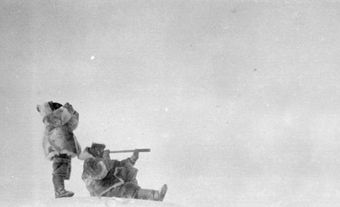
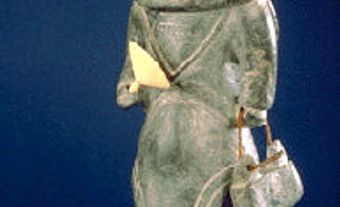
.jpg)
